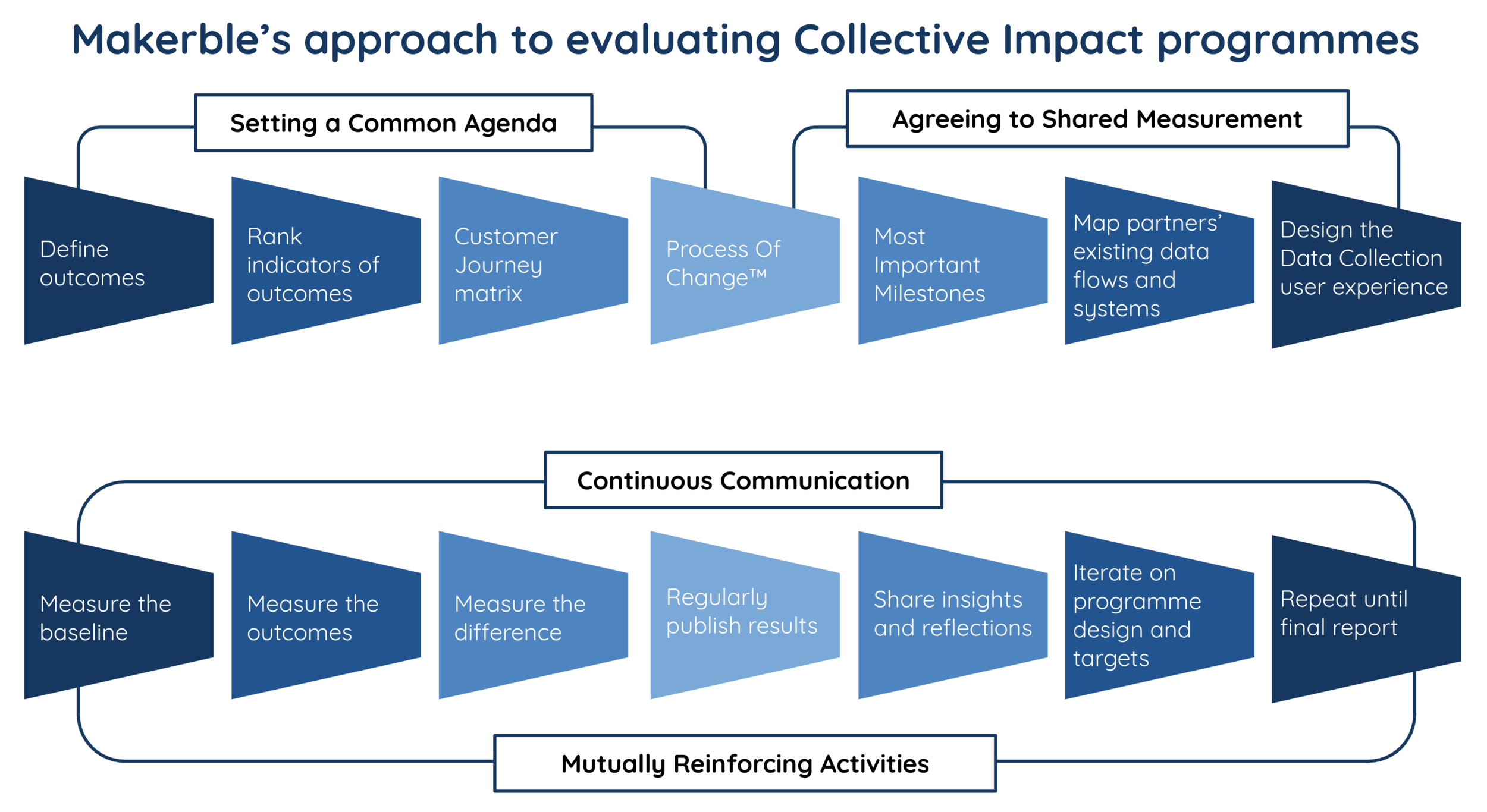Collective Impact programmes present unique challenges for evaluations due to the often complex arrangement of partners who are each producing data that could inform an evaluation. To get around this, we take a collaborative approach to planning the impact methodology which intentionally draws upon the insight and expertise of the respective partners. Our approach is anchored to the Five Pillars of Collective Impact. The fifth pillar, a strong backbone organisation, is typically the ‘lead’ organisation within the partnership which commissions Makerble as the evaluation partner in the first place.
Setting a common agenda is an essential first step to evaluating a Collective Impact programme. We use our proprietary Process Of Change™ framework in workshops with partners to enable everyone to agree on shared language that describes the outcomes being achieved at each stage of a person’s journey through your programme. This typically involves mapping out the ‘customer journey’ that a service user, participant or beneficiary might take through your programme.
Agreeing to Shared Measurement requires partners to distil a pragmatic set of indicators which will be reported across the programme. These shared measures open the door to continuous improvement as partners are able to see their collective results and have open dialogue about factors which are acting as enablers and inhibitors to people’s progress through the programme. Part of the role Makerble plays when evaluating collective impact programmes is in providing the dashboards which enable shared measurement to happen and facilitating the conversations which enable continuous reflection, learning and iteration to take place.
To find out more about how we can conduct the evaluation of your Collective Impact programme, contact Matt Kepple via email on [email protected] or over the phone on +44 (0) 7950 421 815.
To find out more about the tools and techniques we use, visit our Building Blocks of Measurement.
Collective Impact Client Stories:



